Some farmers are satisfied with growing produce and livestock. Gary Maunakea-Forth is not that farmer. The man who’s been known to wear a “Green Machine” T-shirt was born in “the most boring town in New Zealand,” where he worked alongside his brother on their uncle’s blueberry farm. He moved to Hawaii for a local girl and studied Environmental Studies and Political Science at University of Hawaii. Maunakea-Forth co-founded Ma’o Organic Farms with wife Kukui in Waianae, surrounded by lush mountains.
Ma’o specializes in growing organic fruits and vegetables, but also molds young people. Maunakea-Forth said with their non-profit, “We generally work with 17-24 year olds who we think can be leaders in the community.” That involves helping young adults go to college in exchange for a commitment to farming. As Maunakea-Forth put it, “Building a relationship with friends over food is probably one of the most primordial things you can do.”
Ma’o has increased in scale over the years. A capital investment from eBay founder Pierre Omidyar allowed Ma’o to go from 5 leased acres to 17 owned acres. They took over an orchid nursery and chicken farm (complete with 25 years of nutrient-rich manure), Ma’o now produces more than three-dozen crops on 24 acres, including greens, root crops, cooking greens, fruits and herbs, all grown with Aloha ‘Aina, “love of the land.” They’re able to generate $500,000 in sales per year in sales to three primary groups: restaurants (chefs like Ed Kenney, George Mavrothalassitis and Roy Yamaguchi), retail (Whole Foods, Food Land), direct sales at farmers markets & CSA.
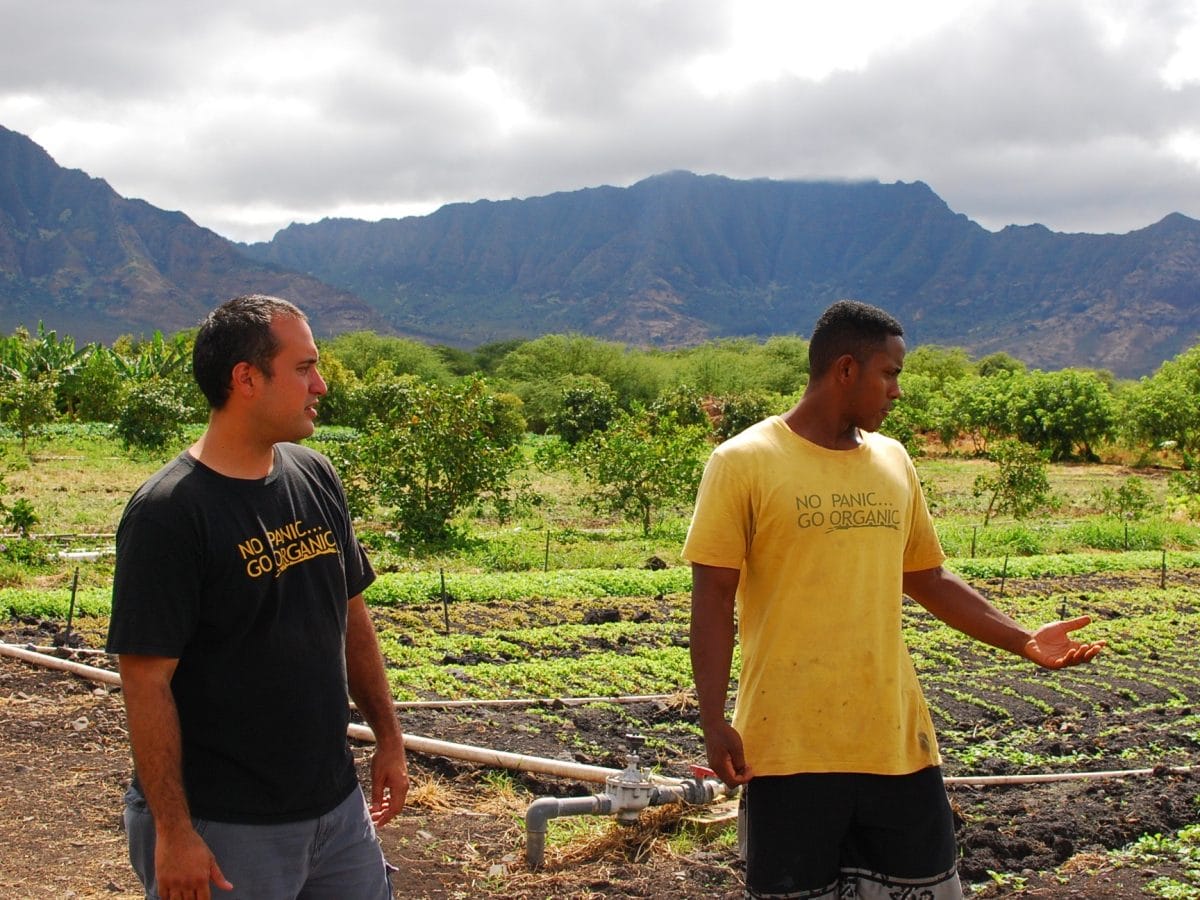
Kamuela “Kamu” Enos is Ma’o’s director of social enterprise. He’s one of the farm’s chief spokespeople and adheres to a fitting motto: “No panic…go organic.” During a visit to Ma’o with a group of fellow writers from around the world, we started the farm tour at a communal table, under a peaked corrugated metal roof. We took turns announcing our name, affiliation, hometown, favorite fruit and vegetable. Mine: peach and Jerusalem.
“To grow food in Hawaii is a political act,” said Kamu. “To grow food in this community is even more of a political act.” The community has the largest native population, many of which have been marginalized to the arid part of the island over the years. Ma’o is committed to empowering young adults, 40% of which drop out from high school. Only 6% of community go to college. Ma’o’s Youth Leadership Training program requires that participants live on the coast, that they’re high school graduates, and that they complete 20 hours of farm work per week during a three-year contract in exchange for full tuition to local community college. Ma’o is currently sending 40 young adults to college as organic farmers. If they fail a class, they pay Ma’o back. If they go more than two semesters under 2.0 GPA, they exit the program.
Ma’o has also created separate supplementary certificates involving four courses: intro to organic farming, business, food systems and capstone (an all inclusive course).
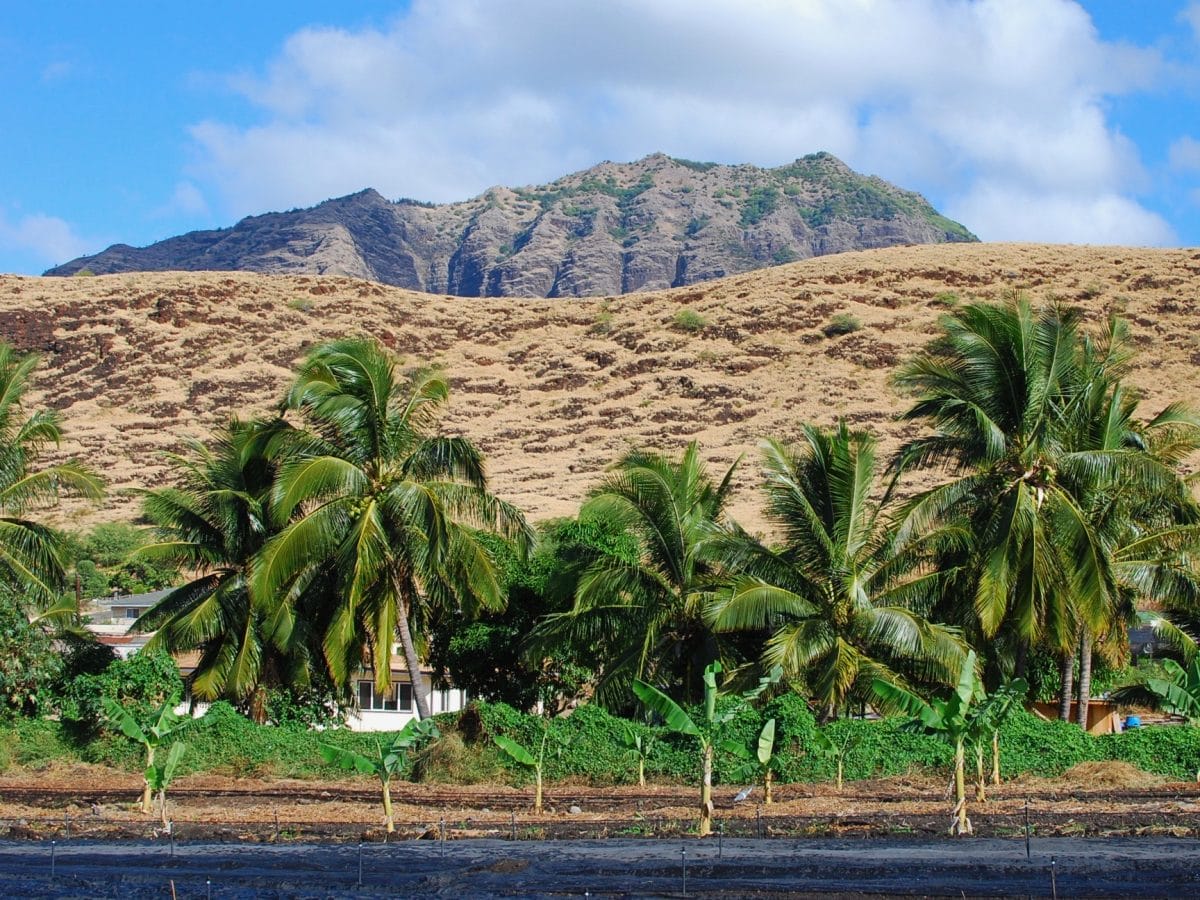
Kamu said Ma’o is “reshaping the narrative of this community to being the breadbasket of this island.” He added, “Ee create a space for the natural leadership they already have to grow…We’re teaching them to be dynamic entrepreneurs, dynamic learners, but also dynamic leaders.”
The structure with the peaked roof houses a bread oven, pizza oven and hosts events with chefs, including Outstanding in the Field. Kamu said that part of the education process involves taking young adults to Honolulu restaurants like Town and Alan Wong, where they’re able to experience agriculture on another level and see inspiring uses for their efforts.
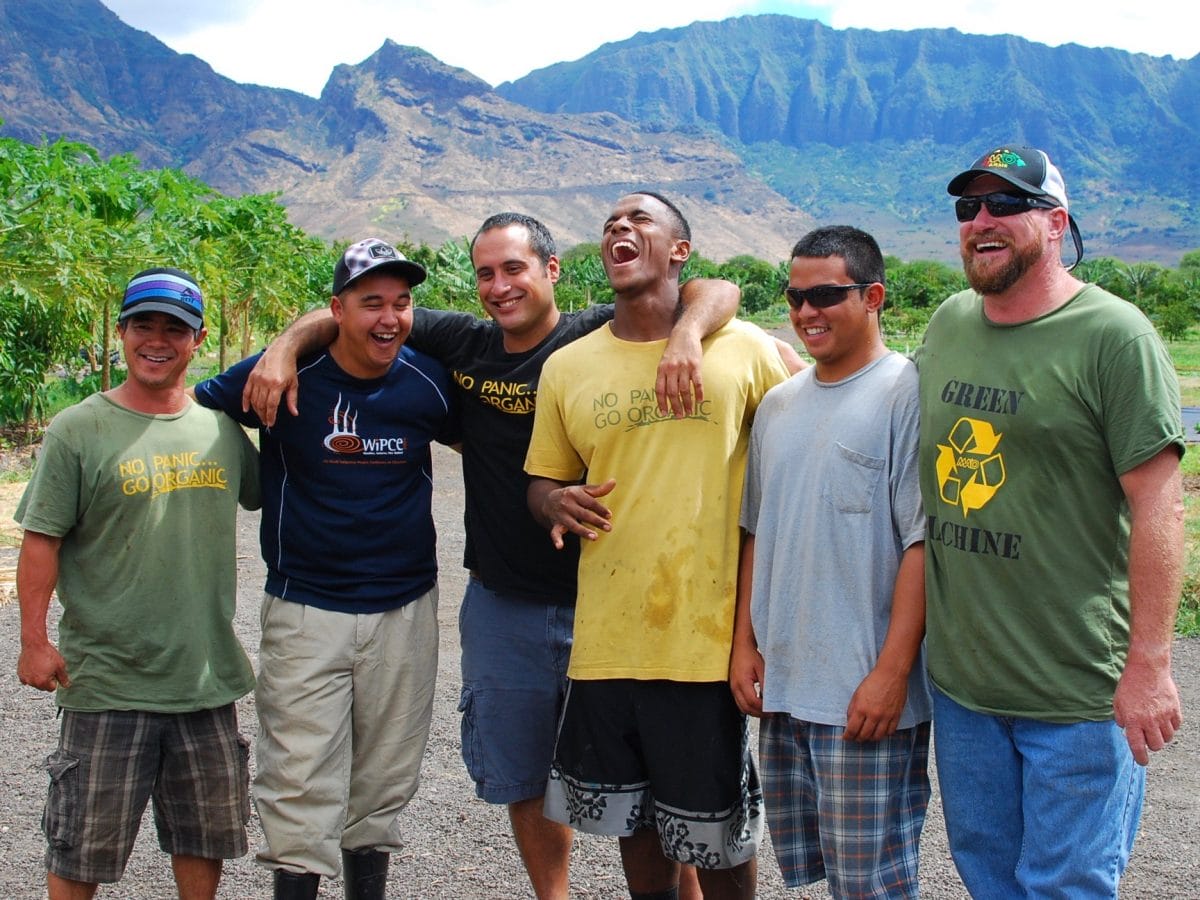
Interns Dino and Derrik joined our farm walk, along with Gary, Manu, Manny and other staffers.
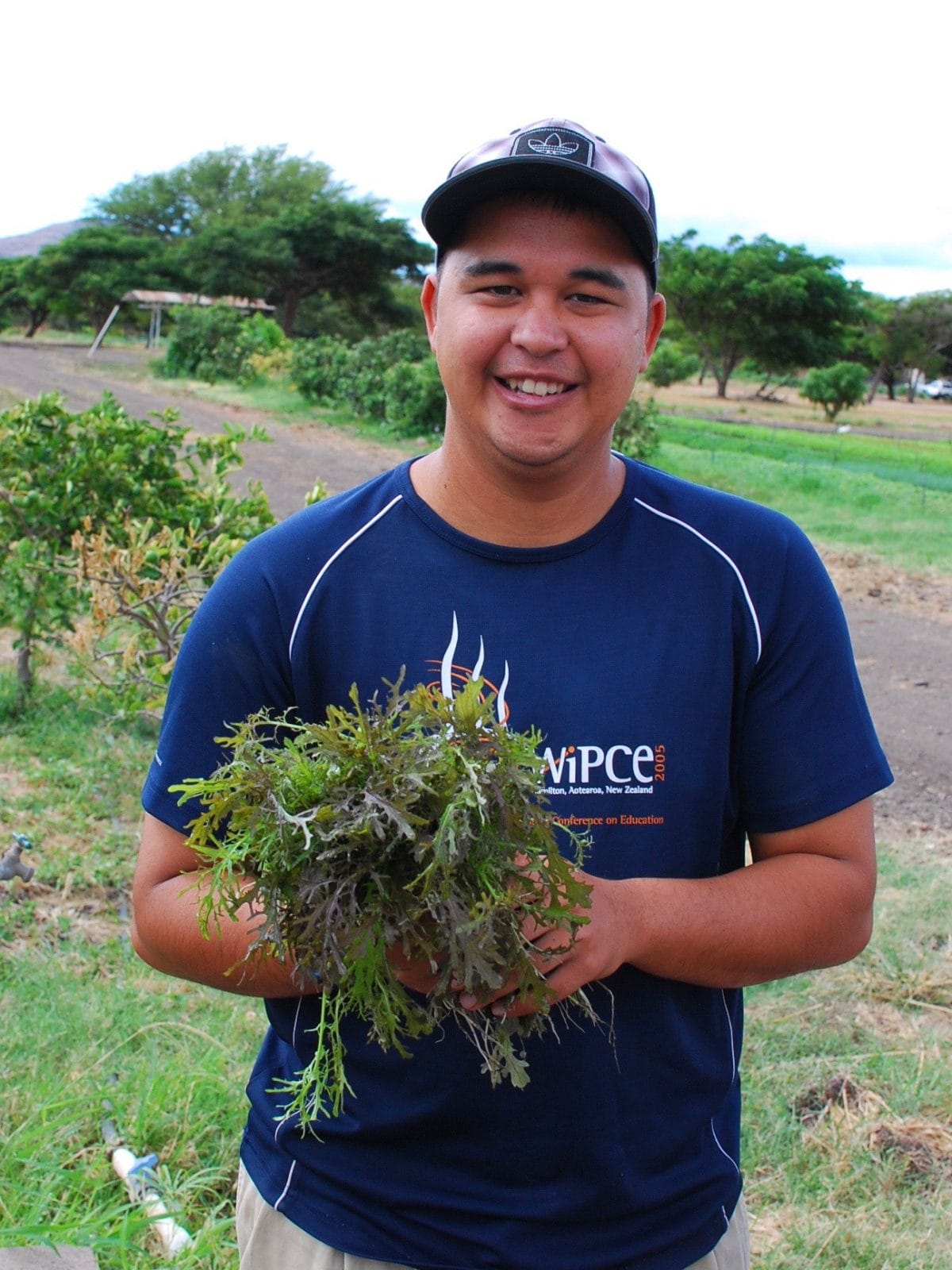
Assistant Farm Manager Manny Miles posed with a bunch of their spicy arugula.
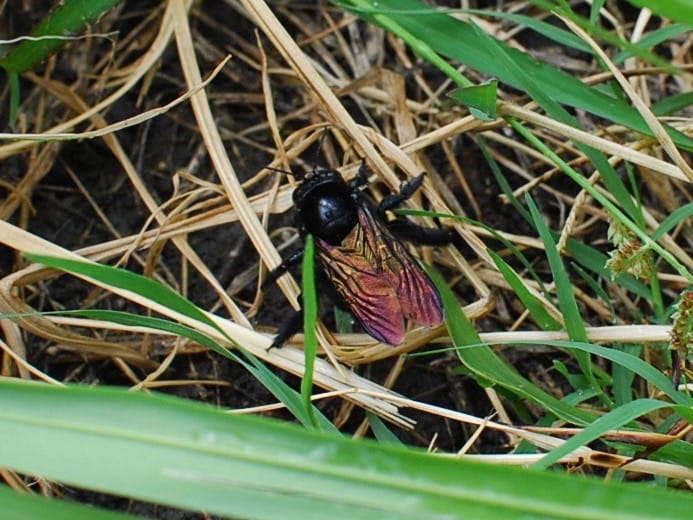
We also had a tag-along in the fields, a beetle.
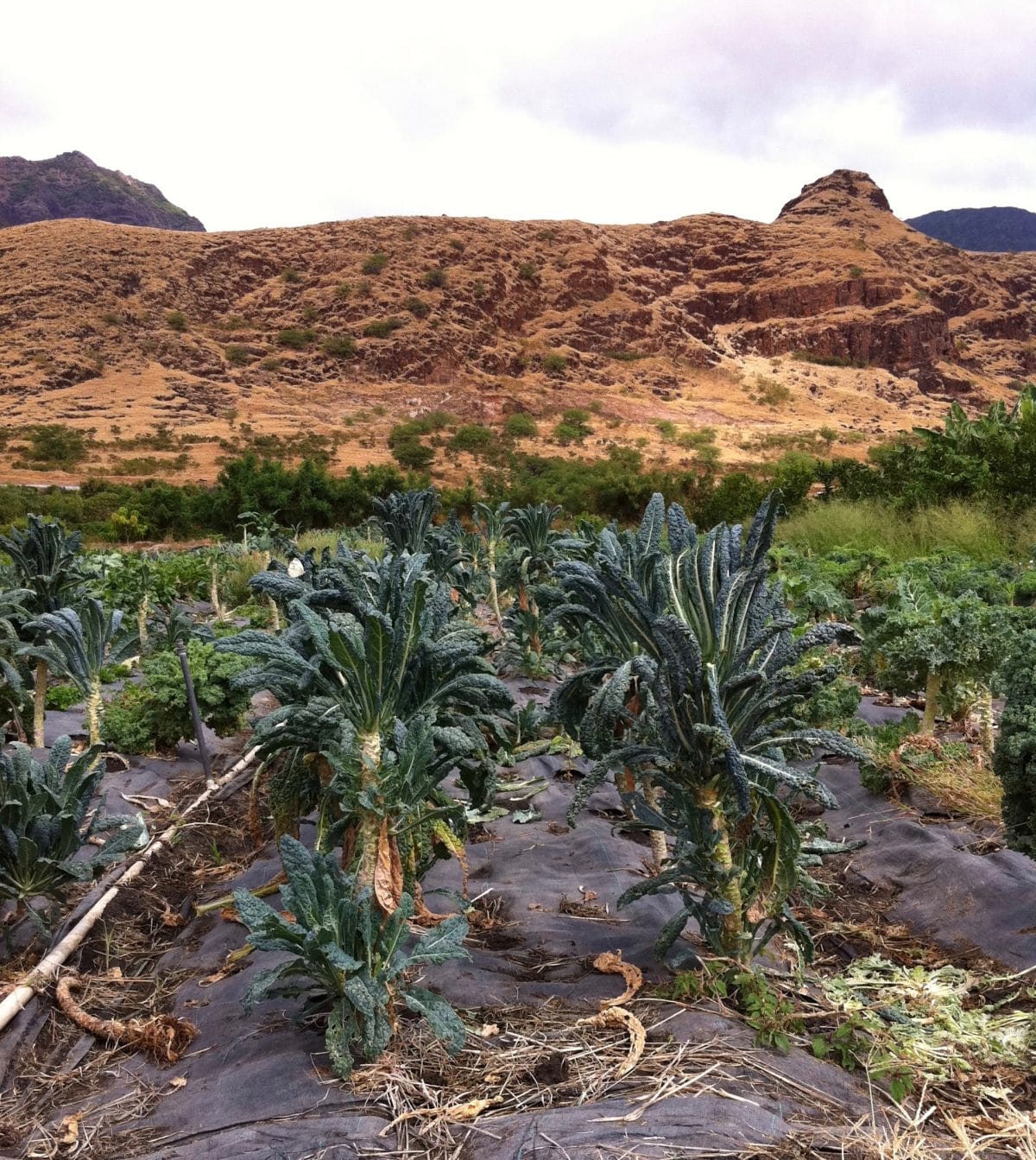
They grow Hakuri (Japanese turnip), red Russian kale, cilantro, spicy arugula, lollo rossa. We also witnessed lacinato kale (aka dinosaur kale), complete with a mountainous backdrop.
Derrik talked about the importance of taking risks, from working full time while going to school full time, to the Maunakea-Forths starting farm and hiring young adults to work the farm.
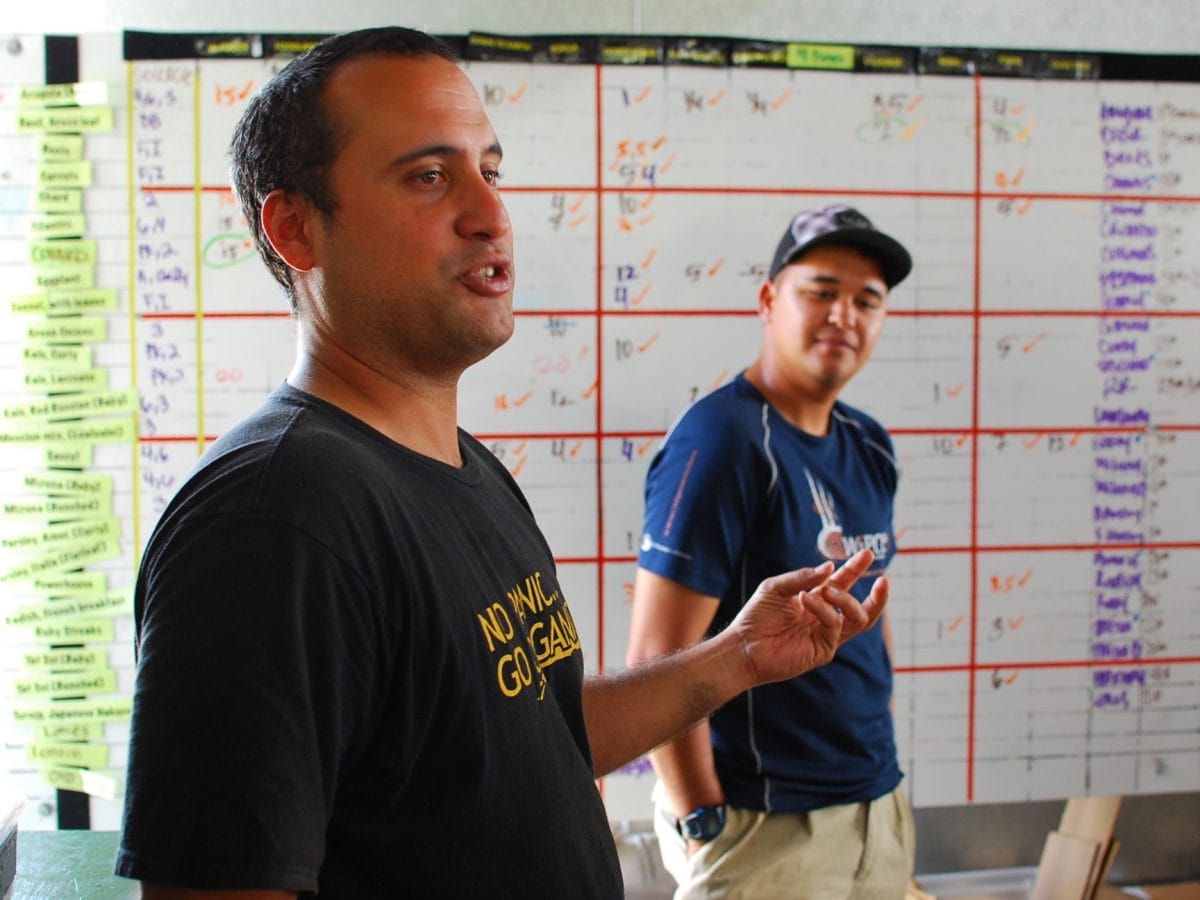
Kamu said that when people doubt the ability to grow certain produce on Oahu, that spurs them to find a way, saying, “When you hear no, that means there’s a market.” Kamu shared this insight and more in front of the white board grid that designates where their produce goes.
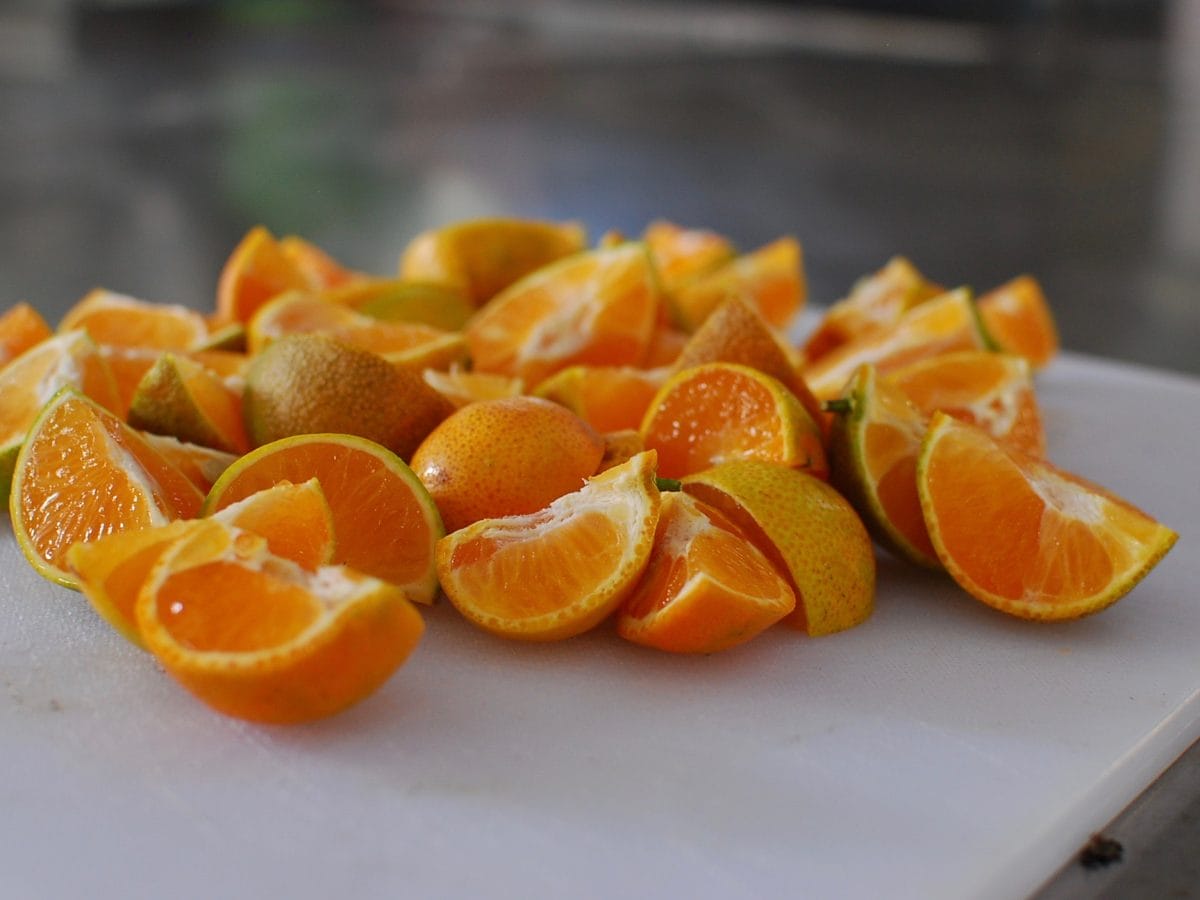
Before leaving for our next farm, we enjoyed some tangerines…
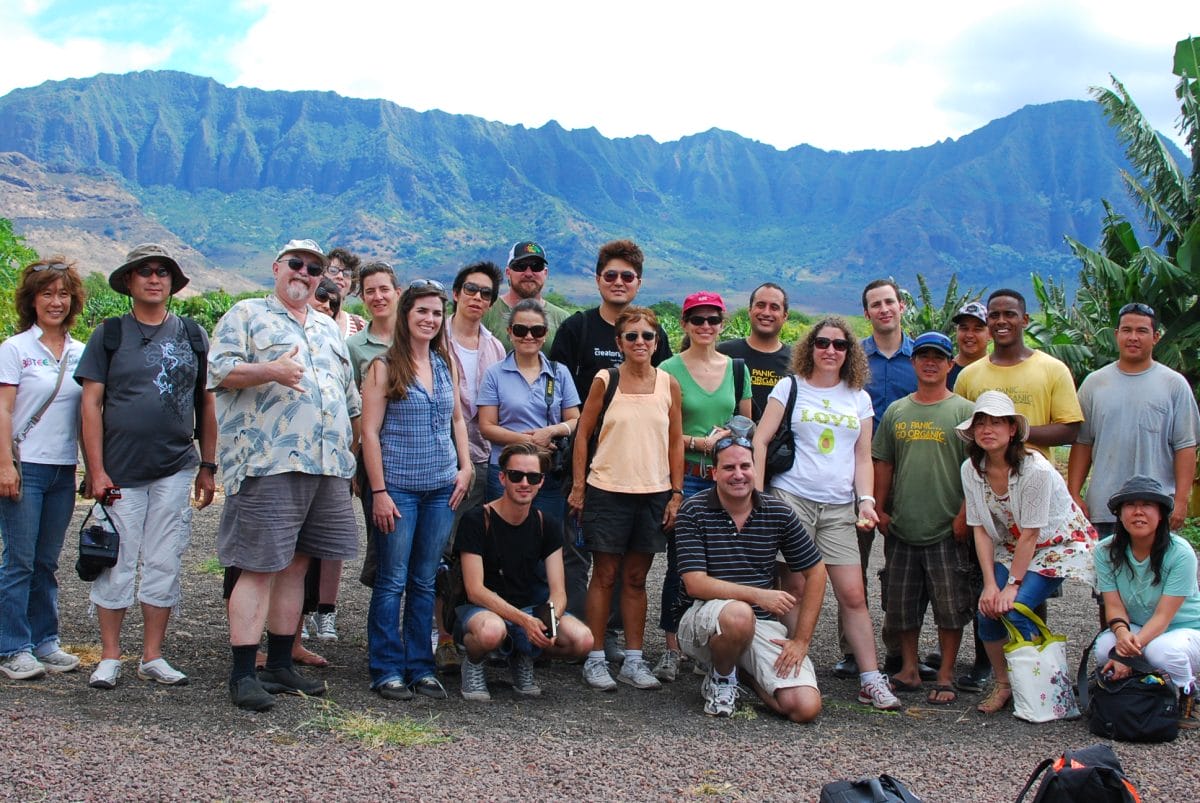
…and posed for a group photo, writers, farmers and all, punctuating an inspiring visit.

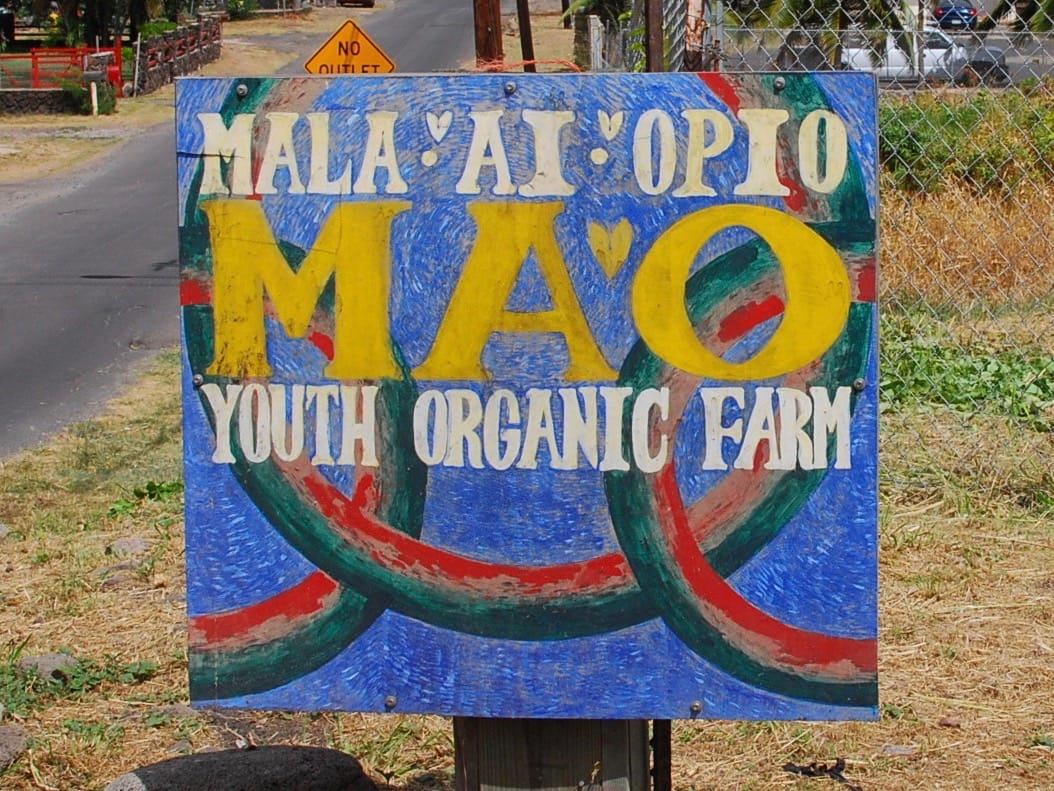
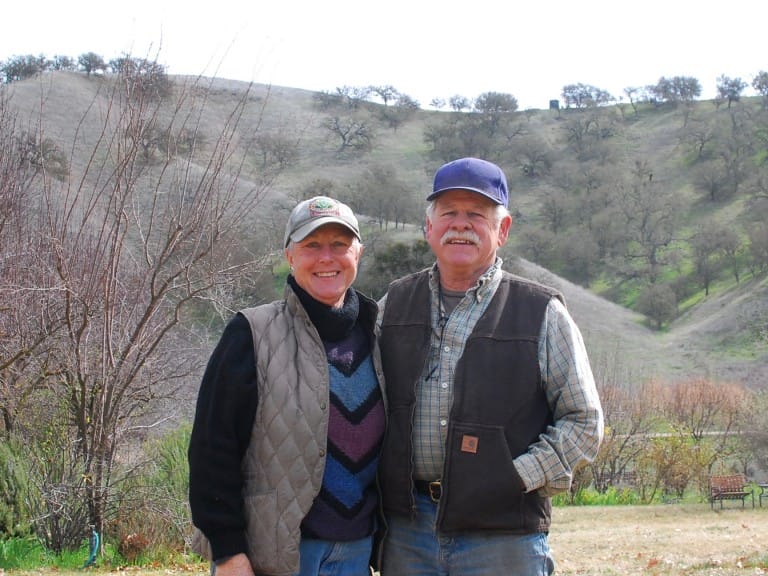
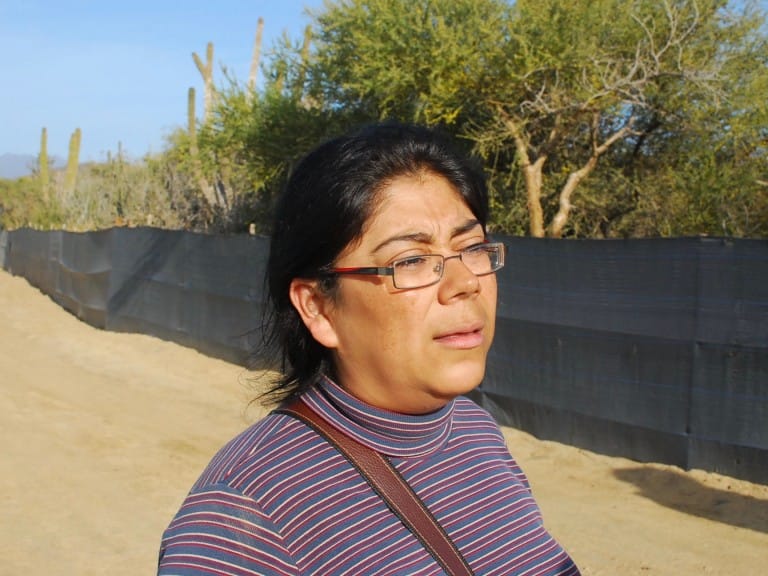
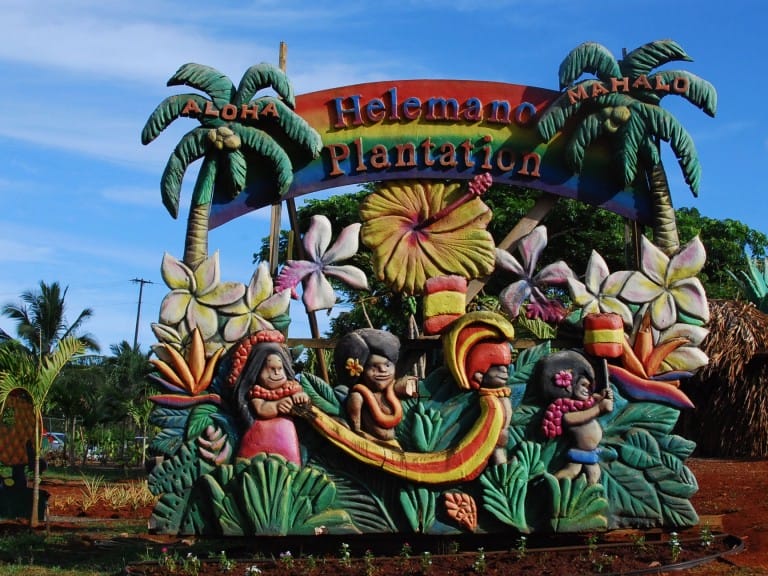




Blog Comments
Amparo
February 8, 2016 at 7:26 AM
How can I order: blk no panic go organic ? I gave one to my brother n we all met in Austin for baby luau. All other family members were bummed they didn’t have one too! Lol!
[email protected]
808 220-2439
Aloha n mahalo nui loa!
Jane
December 7, 2011 at 6:30 AM
Interesting review and terrific photos, Josh.